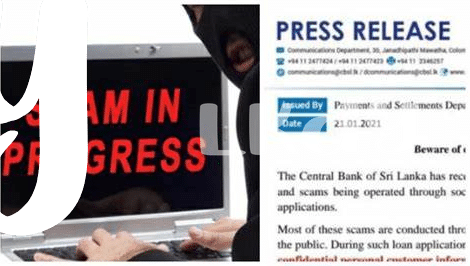Introduction to Cryptocurrency Scams 💰

Cryptocurrency scams have increasingly become a prevalent issue in the digital realm. With the growing popularity of cryptocurrencies, scammers are finding new ways to exploit the naivety of individuals seeking to invest in this evolving financial landscape. These fraudulent activities range from Ponzi schemes and fake ICOs to phishing scams and pump-and-dump schemes, preying on unsuspecting victims who are lured by promises of quick riches or investment opportunities that seem too good to be true. As the allure of decentralized currencies continues to captivate the mainstream market, it is crucial for users to be aware of the risks and pitfalls associated with engaging in cryptocurrency transactions.
| **Cryptocurrency Scam Types** | **Description** |
|—————————–|—————–|
| Ponzi Schemes | Fraudulent investment schemes where returns are paid to earlier investors using the capital from newer investors, usually leading to eventual collapse. |
| Phishing Scams | Deceptive emails or websites designed to trick individuals into divulging sensitive information such as private keys or login credentials. |
| Fake ICOs | Bogus initial coin offerings that promise high returns on investment but are fraudulent ventures aimed at duping investors. |
| Pump-and-Dump Schemes | Manipulative practices where the price of a cryptocurrency is artificially inflated, only to be sold off quickly to unsuspecting buyers. |
Common Types of Cryptocurrency Fraud 🕵️♂️
Cryptocurrency fraud comes in various forms, preying on unsuspecting individuals who navigate the complex world of digital currencies. One common type is phishing scams, where fraudsters pose as legitimate entities to steal personal information and funds. Another prevalent scheme is Ponzi schemes, promising unrealistic returns to lure investors into a web of deceit. Additionally, fake initial coin offerings (ICOs) attract investors with promises of revolutionary projects that turn out to be nonexistent. Hacking and malware attacks also pose significant risks, with hackers targeting cryptocurrency exchanges and wallets to siphon off funds. Being aware of these tactics and staying vigilant can help protect against falling victim to these malicious activities in the crypto realm.
Impact of Scams on Victims 🤕

Cryptocurrency scams can have devastating effects on individuals who fall victim to fraudulent schemes. These scams not only result in financial losses but also can cause emotional distress and a sense of betrayal. Victims of cryptocurrency scams often feel a deep sense of regret and frustration as they come to terms with the fact that they have been deceived.
In addition to the financial impact, victims may also experience a loss of trust in online platforms and a fear of engaging in future investments. The aftermath of falling for a cryptocurrency scam can be long-lasting, affecting the victim’s financial stability and mental well-being. It is essential to raise awareness about the detrimental effects of these scams and provide support for those who have been affected.
Reporting Fraudulent Activities 🚨

To effectively combat the rising wave of cryptocurrency scams, it is crucial for individuals to be aware of the various fraudulent activities prevalent in the digital currency realm. Reporting fraudulent activities serves as a vital step in safeguarding both oneself and the broader community from falling victim to malicious actors. By promptly reporting suspicious behavior or potential scams to the relevant authorities, individuals contribute to the collective effort in preventing further financial harm and protecting the integrity of the crypto space. In a world where digital transactions are increasingly common, staying vigilant and proactive in reporting any signs of fraudulent activity is key to maintaining a safe and secure environment for all participants. If you encounter any suspicious behavior, don’t hesitate to report it promptly to the appropriate channels, as every action taken plays a crucial role in combating cryptocurrency scams. You can find more insights on effective reporting and prevention strategies related to bitcoin fraud and scam reporting in Slovenia by visiting [bitcoin fraud and scam reporting in Slovenia](https://wikicrypto.news/top-bitcoin-scam-tactics-in-south-korea-exposed).
Regulatory Measures Against Scammers ⚖️
Cryptocurrency scams have prompted authorities to implement strict regulatory measures to combat fraudulent activities in Sri Lanka. These measures include enhanced oversight of cryptocurrency exchanges, imposing licensing requirements on digital asset service providers, and establishing reporting mechanisms for suspicious transactions. The government has also taken steps to educate the public about the risks associated with investing in cryptocurrencies and the importance of due diligence. By enforcing these regulations, regulators aim to create a safer environment for investors and reduce the prevalence of scams in the crypto space.
| Regulatory Measures Against Scammers |
|---|
| Enhanced oversight of cryptocurrency exchanges |
| Licensing requirements for digital asset service providers |
| Establishing reporting mechanisms for suspicious transactions |
| Public education on risks and due diligence |
Staying Safe in the Crypto Space 🔒

Cryptocurrencies have revolutionized the financial landscape, offering exciting opportunities for investors worldwide. However, with great potential comes great risks. To navigate the crypto space safely, it’s crucial to be vigilant against scams and fraudulent activities. 🔒 Stay informed about the latest scam tactics and always verify the legitimacy of any investment opportunity before parting with your funds. Additionally, safeguard your digital assets by using secure wallets and practicing good cyber hygiene. By staying proactive and educated, you can protect yourself from falling victim to cryptocurrency scams and fraud. Remember, in the world of crypto, staying safe is key to enjoying the benefits it has to offer.
To report any suspicious activities related to cryptocurrency fraud, visit bitcoin fraud and scam reporting in South Africa or bitcoin fraud and scam reporting in South Korea.
